In this article, we will explore the true nature of the international rules-based order (IRBO) and examine the forces that shape it. We will consider if the narratives we are commonly fed stack up.
It is widely accepted that the IRBO is undergoing disruptive change. That transformation is often reported as an eastward shift in the balance of power between nation states.
It is said that this new, emerging international order will be founded upon a global multipolar system of sovereign states and international law. This new system allegedly stands in opposition to the fading, western “rules-based” model.
This time, rather than relying upon western imperialism, the new international law-based system will emphasise multipolar cooperation, trade and respect for national sovereignty. It will instead be led by a Eurasian economic and technological power-block.
The apparent, ongoing antagonism of geopolitics looks likely to maintain the East-West divide we are familiar with. However, what is now being framed as the multipolar order is, in reality, the multistakeholder order.
As we shall discover, nation states are not the driving force behind the current restructuring of global governance. The geopolitical narratives we are given are frequently superficial.
Those leading the transformation have no allegiance to any nation state, only to their own globalist network and collective aspirations. In their hands, international law is no more of an impediment to their ambitions than a vague commitment to “rules.”
National governments are partners within this network formed of both state and non-state actors. Despite professed animosities, they have collaborated for decades to fashion the global governance complex that is now emerging.
No matter who is said to lead it, the IRBO is set to continue in a new form. As the post WWII system recedes, the framework being imposed to take its place is completely alien to the people who live in the former western, liberal democracies.
Thus, we too must be transformed if we are to accept the realignment. We are being conditioned to believe in the promise of the new IRBO and the global technocracy it is built upon.
The International Rules Based Order (IRBO)
In 2016, Stewart Patrick of the Council on Foreign Relations (CFR) published World Order: What, Exactly, are the Rules? In it, he described the post WWII era as the “international rules-based order” (IRBO).
Rooted firmly in American exceptionalism, Patrick described how the so-called IRBO acted as a mechanism for hegemonic control of global politics, the world’s economy and the international monetary and financial system (IMFS):
“What sets the post-1945 Western order apart is that it was shaped overwhelmingly by a single power, the United States. Operating within the broader context of strategic bipolarity, it constructed, managed, and defended the regimes of the capitalist world economy […] In the trade sphere, the hegemon presses for liberalization and maintains an open market; in the monetary sphere, it supplies a freely convertible international currency, manages exchange rates, provides liquidity, and serves as a lender of last resort; and in the financial sphere, it serves as a source of international investment and development.”
While international law is a component of the IRBO, it is not in and of itself law. Professor Malcolm Chalmers, writing for the UK Royal United Services Institute (RUSI), described the IRBO as a combination of universal security and economic systems combined with international agreement and conflict resolution processes.
The current IRBO is supposedly a western system of international norms and institutions. Based upon both the post WWI and WWII settlements, what is suggested as order is little more than a realisation of “might is right” on the international stage.
Actions Not Words
In the West, we have been educated to have faith in the IRBO. It is sold to us as an arrangement that establishes normative behaviour for nation states. A basis for international relations is supposedly agreed upon and acceptable behaviour ordained.
Far from being a set of rules to facilitate peaceful coexistence between nation states, the IRBO has always been a tool for manipulation. The question is who wields it?
The recent joint statement between the Russian Federation and the People’s Republic of China appeared to explicitly redefine the current IRBO. Presidents Vladimir Putin and Xi Jinping agreement read, in part:
“Today, the world is going through momentous changes, and humanity is entering a new era of rapid development and profound transformation. It sees the development of such processes and phenomena as multipolarity, economic globalization, the advent of information society, cultural diversity, transformation of the global governance architecture and world order. [. . .] a trend has emerged towards redistribution of power in the world. [. . .] the international law-based world order, seek genuine multipolarity with the United Nations and its Security Council playing a central and coordinating role.”
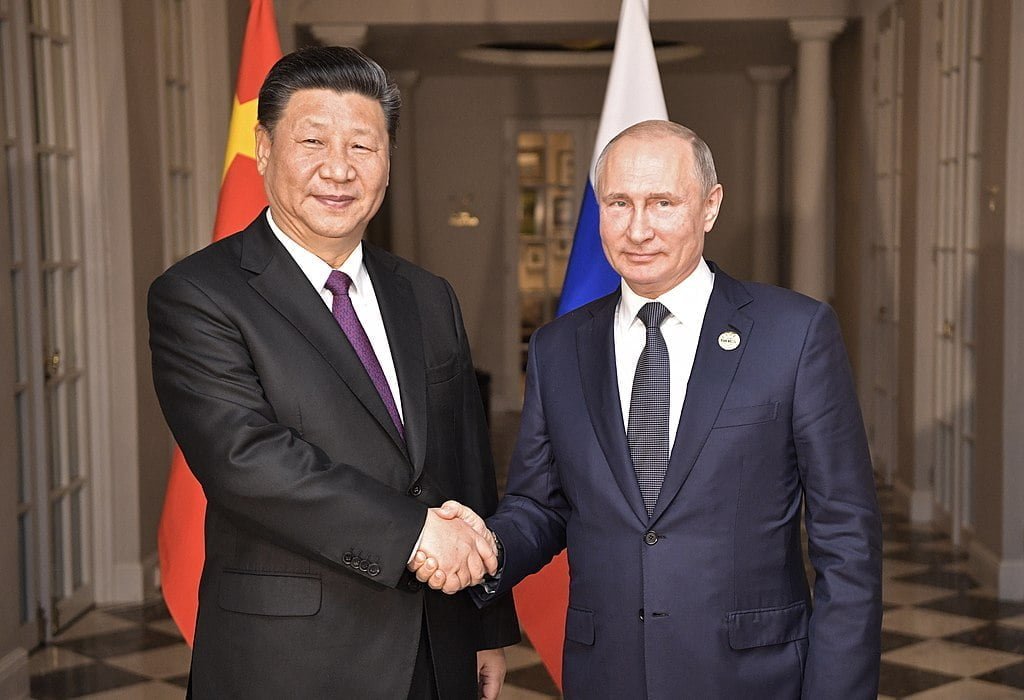
By contrast, the speech delivered by UK Foreign Secretary Liz Truss to the Lowy Institute, a Rothschild backed Australian policy think-tank with a focus upon the Asia-Pacific region, illustrated the western position. She said:
“Russia and China are working together more and more, as they strive to set the standards in technologies like artificial intelligence, assert their dominance over the Western Pacific. [. . .] They’re destabilising the international rules-based order and they’re chipping away at the values that underpin it. [. . .] We believe in freedom and democracy. [. . .] As Prime Minister Scott Morrison said, ‘we know from the evidence of human history that democracies are the engine room of change.’ [. . .] Technology has empowered people by enabling incredible freedom, but we know it can be seized upon by others to promote fear. [. . .] By joining forces with the US we are showing our determination to protect security and stability across the region.”
Taken on face value, we would inevitably conclude that, while the axis is in flux, the adversarial stand-off continues. To a great extent, this is a fabrication.
In discussing the IRBO, we immediately run into a nomenclature problem. Sometimes referred to as the “rules-based international order;” at other times the “international order” or “rules-based system;” or occasionally the “rules-based international system,” now we seemingly need to add “international law-based world order.”
While there is no settled definition for this alleged system of global governance, it all amounts to the same thing. The fulcrum may have moved, but the ruse remains intact.
This definition problem illustrates the primary flaw with any notion of a global rules-based order. It is ill-defined and transient. It relies more upon the realpolitik of the day than any genuine moral, legal or political precepts.
While Truss accurately outlined how that so-called order can be seized and exploited, she misled her audience in regards to who the abusers are. Nor is the existing IRBO founded upon democracy and freedom. Her claims were a deceit.
Recently the US Department of Homeland Security (DHS) stated that undermining trust in the government was achieved by individuals spreading “false” narratives and that this was tantamount to terrorism. In other words, no US citizen has any right to question government policy. If they do, they are spreading disinformation. Consequently, the DHS suggests that not trusting the government should be prosecuted as a crime.
This is the claimed justification for the focus of the new domestic terrorism unit working alongside the US Justice Department’s National Security Division. Assistant Attorney General Matthew Olsen told a Senate Judiciary Committee that the unit was created to combat the growing threat of “extremism,” which apparently includes “anti-government and anti-authority ideologies.”
To question either “authority” or “government” is an extremist position, according to the US Justice Department and the DHS. There is no room for freedom of speech in the government’s extremist ideology. Without freedom of speech, US democracy is finished.
Similarly, in New Zealand, Prime Minister Jacinda Ardern (a World Economic Forum Young Global Leader) admitted her government’s intention to ignore people’s inalienable right to roam unless they submitted to vaccination. So too with the European Commission, whose EU Digital COVID Certificate limits freedom of movement only to citizens who have the right pharmaceutical products injected into them.
These vaccine “certificates” are the gateway to full digital ID for all compliant citizens. Speaking in June 2021, the President of the EU Commission, Ursula Von Der Leyen, said:
“We want to offer to Europeans a new digital identity. An identity that ensures trust and protects users online. [. . .] It will allow everyone to control their identity online, and to interact with governments and businesses, across the EU.”
In other words, the EU citizen’s vaccine status, which will form a key part of digital identity per EU plans, will also be required for them to access goods and services. Without the appropriate authorisation, they will be excluded from society.
Recently, some governments have appeared to backtrack on their vaccine passport (certificate) plans. This is simply a brief cessation in the face of mounting public protest.
The commitment to digital identity, controlling every aspect of our lives, is inherent to the UN’s Sustainable Development Goal 16.9. The policy trajectory towards digital identity is global, no matter who allegedly leads the IRBO.
None of these policies indicates, as Truss claimed, any underlying belief in “freedom and democracy.” Among the Five Eyes nations and across the EU, all we see is a commitment to authoritarian dictatorship.

In the UK, where Truss is a leading government figure, plans for a dictatorship are at an advanced stage. The UK state has exploited the pseudopandemic to progress and enact a slew of dictatorial legislation.
The Covert Human Intelligence Sources (Criminal Conduct) Act 2020 empowers the state to commit any crime it likes and removes all legal liability from its operatives; the Police, Crimes, Sentencing & Courts Bill effectively outlaws all public protest and, while currently stalled after the House of Lords rejected the Bill, some minor amendments will almost certainly see it passed into law; the Online Safety Bill, when enacted, will end freedom of speech online and the proposed changes to official secrets, counter-espionage; and counter-terrorism legislation will remove the journalist’s defence of acting in the public interest, effectively ending whistle-blowing and investigative journalism in the UK.
All these tyrannical changes are exemplified by the UK government’s proposed Human Rights Act reforms. Their press release demonstrates how their claim of respecting individual rights, freedoms and democracy is nothing more than propaganda designed to dupe an unsuspecting public.
While they speak of diversity and a historical commitment to freedom, peppering their press release with fluffy sound-bites, their actions belie their intent. They state:
“The government wants to introduce a Bill of Rights in a way that protects people’s fundamental rights whilst safeguarding the broader public interest [. . .] [T]he growth of a ‘rights culture’ [. . .] has displaced due focus on personal responsibility and the public interest. [. . .] Whilst human rights are universal, a Bill of Rights could require the courts to give greater consideration to the behaviour of claimants and the wider public interest when interpreting and balancing qualified rights. [. . .] The shift of law-making power away from Parliament towards the courts, in defining rights and weighing them against the broader public interest, has resulted in a democratic deficit. [. . .] [F]reedom of expression cannot be an absolute right when balanced against the need to protect national security, keep citizens safe and take steps to protect against harm to individuals.”
While the UK state claims “human rights are universal” they clearly aren’t if they are “qualified rights” based upon whatever the government decides to be more important. Individuals pressing their rights in court has hampered the government’s programs. This is considered to be a “democratic deficit.” Therefore, the New Bill of Rights will protect the government’s power and authority over-and-above the freedoms of the people.
The UK Government will define “national security.” Protecting it, as they see fit, will override all individual rights. Freedom to roam, of speech and expression will not be tolerated by the UK state. Instead a commitment to the “public interest,” “safety” and protecting the population from some nebulous notion of “harm,” will replace freedom and democracy.
On both sides of the Atlantic, and in the Five Eyes global south, a new system is emerging which facilitates what Mussolini described as the Fascist State:
“The Fascist conception of life stresses the importance of the State and accepts the individual only in so far as his interests coincide with those of the State. [. . .] Liberalism denied the State in the name of the individual; Fascism reasserts the rights of the State as expressing the real essence of the individual. [. . .] The Fascist conception of the State is all embracing; outside of it no human or spiritual values can exist, much less have value. Thus understood, Fascism, is totalitarian, and the Fascist State — a synthesis and a unit inclusive of all values — interprets, develops, and potentates the whole life of a people.”
It is the US led alliance of Five Eyes nations and the European Union that claim themselves to be the protectors of the international rules-based order. With their commitment to a new form of global fascism, the idea that the IRBO keeps us safe is questionable. In truth, the current IRBO has never actually promoted either freedom or democracy.
It is customary for the IRBO’s alleged leaders to practice double standards. Illegal wars, prolonged terrorist campaigns against their own populations, support for foreign terrorist insurgencies, cruel economic sanctions and involvement in international narcotic smuggling operations typify the activities of the nation states that claim ownership of the IRBO.
While the western hegemony insists that all follow their rules, they don’t hold themselves to the same. A few recent examples, among many, have witnessed the U.S. unilateral withdrawal from the Joint Comprehensive Plan of Action (JCPOA), often referred to as the Iran Nuclear Deal; NATO renege on assurances, given to the last Soviet President Mikhail Gorbachev, that it would not expand “one inch eastward”; and the imprisonment of journalists.
This is not to claim that the supposed opponents of the current IRBO, notably Russia, China and Iran, are above reproach themselves. However, it is untenable for the “leading nations” of the existing IRBO to commandeer any moral supremacy.
Politicians like Truss promote the IRBO as the cornerstone of international peace and security, but these are meaningless platitudes. There is nothing inherently peaceful or secure about it.
The Real IRBO
The current IRBO is portrayed as a project of western, formerly liberal, democratic states that has capitalised upon U.S. economic and military dominance. However, despite that being how mainstream media (MSM), academia and think-tanks present it, that is not what the international rules-based order is today.
The IRBO can more accurately be described as a vehicle for a worldwide stakeholder capitalist network to manipulate nation states in pursuit of its own predominantly private, corporate agenda. Indeed, we might argue that is all it has ever been.
A truly global network of corporations, think-tanks, private foundations, intergovernmental organisations, NGOs and governments work in partnership to convert global policy agendas into policy and legislation at the national and local government level. This is the Global Public-Private Partnership (G3P) and its reach extends to every nation.
We may view the global political map as a patchwork of sovereign nations, existing in a state of anarchy (no one rules them), but the G3P does not. What the global stakeholder capitalist network (G3P) sees is an authoritarian, compartmentalised structure to be manipulated to reach their objective, with that objective being, to create a cohesive system of global governance under their rule.
Throughout the pseudopandemic, the World Economic Forum (WEF) has partnered with government and intergovernmental organisations to promote its Great Reset policy agenda. The G3P is the embodiment of what the WEF calls the multistakeholder model of global governance.
In October 2019, shortly before the pseudopandemic began, the WEF published Global Technology Governance: A Multistakeholder Approach. Assuming the authority to demand that the world accepts the intrusion of its planned 4th Industrial Revolution, the G3P, represented by the WEF, bemoaned what they considered to be the lack of progress towards global governance.
In this multistakeholder system, elected governments are merely one among many stakeholders. Most of the leading partners in the G3P are private corporations, such as the Bank for International Settlements, or they represent private corporate interests, the World Business Council for Sustainable Development for example.
Our democratic oversight only reaches as far as our national government’s influence as a G3P stakeholder allows. We can appreciate the extent of this democratic accountability if we consider the comments of Dominic Cummings, former chief advisor to UK Prime Minister. In testimony given to a parliamentary committee on May 2021 (go to 14:02:35), Cummings said:
“In March I started getting calls from various people saying these new mRNA vaccines could well smash the conventional wisdom.. People like Bill Gates and that kind of network were saying. Essentially what happened is, there is a network of people, Bill Gates type people, who were saying completely rethink the paradigm of how you do this […] What Bill Gates and people like that were saying to me, and others in number 10, was you need to think of this much more like the classic programs of the past.. the Manhattan Project in WWII, the Apollo program […] But what Bill Gates and people were saying […] was, the actual expected return on this is so high that even if does turn out to be all wasted billions it’s still a good gamble, and that is essentially what we did.”
Cummings was talking about the UK government’s public health policy response to an alleged global pandemic. These were decisions that would impact the health of every man, woman and child in the country.
His comments reveal that the UK government was simply following the orders issued by the network of “Bill Gates type people.” The UK state designed a crucial national policy at behest of the Bill and Melinda Gates Foundation (BMGF). They were acting under the instruction of a private, tax exempt foundation.
The BMGF are among the leading stakeholders within the G3P. Like the WEF, their partnerships with government and intergovernmental organisations are extensive.
As we now know, the alleged vaccine safety and efficacy claims made by the BMGF, and the politicians who implemented public health policy for them, weren’t even remotely accurate. We also know that this failure is immaterial to the BMGF because the “return on this is so high” it doesn’t matter.
The policy think-tanks lie at the heart of the G3P. They collaborate with other G3P stakeholder partners to devise the policy agendas that governments then enforce upon their populations.
Think-tanks, such as the Royal Institute for Interantional Affairs (RIIA – Chatham House), are invariably formed by representatives from multinational corporations (including central banks), financial institutions, NGO’s, philanthropic foundations, private donors, intergovernmental organisations, academic institutions and governments, etc.
For example, Chatham House members include the United Nations, the Bill and Melinda Gates Foundation, the Open Society Foundation, The Bank of England, Astrazeneca, GlaxoSmithKline, Bloomberg, The Guardian, The City of London, The European Commission & Union, BAE systems, Goldman Sachs, De Beers, BlackRock, China International Capital Corporation, Huawei, Kings College London, the London School of Economics (LSE), Oxfam, the British Army and governments from around the world. The list goes on.
To imagine that these globalist organisations are effectively powerless and exist merely to help governments devise policy is extremely naive. A more accurate summation has been offered by a few academics. Prof. Hartwig Pautz wrote:
“[T]hey seek to influence policymakers and the wider public, and that they try to do so via informal and formal channels and by making use of their well-connected position in often transnational policy networks encompassing political parties, interest groups, corporations, international organizations, civil society organizations, and civil service bureaucracies. [. . .] [P]olicymakers increasingly need curators, arbiters, or filters to help them decide which information, data, and policy expertise to use in their decision-making processes.”
However, we only need look at the comments of people like Dominic Cummings or Hillary Clinton to recognise that even Pautz’ observations fall short. As then US Secretary of State, Clinton said that the Council on Foreign Relations (CFR) role – as a US foreign policy think-tank – was to tell the US State Department “what we should be doing and how we should think about the future.”
Governments, including those of the US, Russia and China, are G3P stakeholders. In 2017, speaking at a Harvard seminar, the founder and executive chairman of the WEF, Klaus Schwab, said:
“Mrs Merkel, even Vladimir Putin, and so on, they have all been Young Global Leaders of the World Economic Forum. But what we are really proud of now with the young generation like Prime Minister Trudeau, President of Argentina and so on, is that we penetrate the cabinets. So yesterday I was at a reception for Prime Minister Trudeau and I know that half of this cabinet, or even more than half of this cabinet, are for our… actually Young Global Leaders of the World Economic Forum.”
This was no idle boast. Political leaders such as Tony Blair, Jacinda Ardern, Emmanuel Macron, Alexander De Croo (Belgian PM), Sanna Marin (Finnish PM) and many more political heavyweights have been through the YGL programme. This is why, in an address to the Canadian nation in November 2020, in direct reference to the WEF’s so-called Great Reset, Canadian Prime Minister Justin Trudeau said:
“Building back better means getting support to the most vulnerable while maintaining momentum on the 2030 agenda for sustainable development and the SDGs. [. . .] This pandemic has provided an opportunity for a reset. This is our chance to accelerate our pre-pandemic efforts to re-imagine economic systems that actually address global challenges like extreme poverty, inequality and climate change.”
Trudeau is one among many WEF Young Global Leaders (YGL), and members of its predecessor program called the Global Leaders of Tomorrow, who have shaped the global policy response to the pseudopandemic. As a YGL graduate, his task was to convince the Canadian public to embrace the G3P’s Great Reset policy agenda.
Despite Schwab’s claims, Russian President Vladimir Putin does not appear to have been among the WEF’s YGL protégés. Yet, speaking in 2019 to President Quesada of Costa Rica, Klaus Schwab repeated his statement about Putin:
“Mrs Merkel, Tony Blair, they were all, even President Putin, they were all Young Global Leaders.”
In 1993, when the Global Leaders of Tomorrow program began, Putin was 41 and the upper age limit for entry into the program was supposedly 38. It seems unlikely that Putin was “officially” a WEF YGL trainee.
Following 16 years of service in the Soviet KGB, Putin was building his reputation as a politician in 1993, acting as deputy to the Mayor of St Petersburg, Anatoly Sobchak. Sobchak subsequently co-authored the Constitution of the Russian Federation.
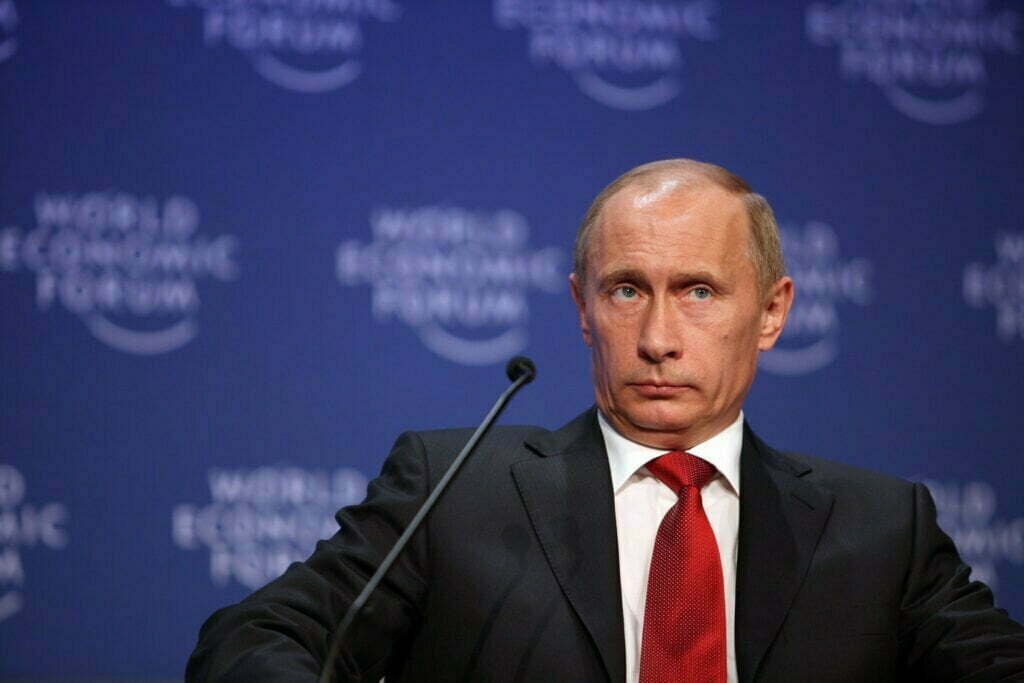
Putin was instrumental in encouraging foreign investment into the city and it was during his time in St Petersburg that Putin seemingly developed a close relationship with Klaus Schwab. In his address to the WEF’s 2021 virtual Davos gathering, Putin said:
“Mr. Schwab, dear Klaus, [. . .] I have been to Davos many times, attending the events organized by Mr. Schwab, even back in the 1990s. Klaus just recalled that we met in 1992. Indeed, during my time in St Petersburg, I visited this important forum many times. [. . .] [I]t is difficult to overlook the fundamental changes in the global economy, politics, social life, and technology. The coronavirus pandemic [. . .] spurred and accelerated the structural changes.”
In terms of G3P partnerships, Russia’s is perhaps one of the closest to the WEF. The WEF’s annual Cyber-Polygon global cybersecurity training exercise is orchestrated by Bi.Zone, a subsidiary of Sberbank.
Bi.Zone is responsible for designing and running the Cyber Polygon scenarios and exercises. Sberbank is a majority state owned Russian bank and is among the founding members of the WEF Centre For Cybersecurity (CCS).
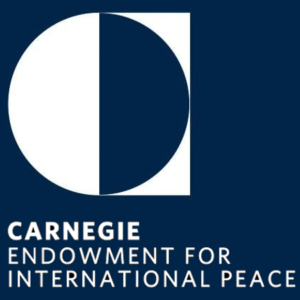
Other CCS partners include leading US foreign Policy think-tank the Carnegie Endowment for International Peace (CEIP), Europol (representing EU governments), INTERPOL, the Organisation of American States (representing the governments of the North and South American subcontinents), and national cyber security centres from Israel, the UK, Korea, Saudi Arabia and Switzerland (home of the BIS).
Of the many corporations involved in Cyber Polygon 2021, Russian companies formed the largest contingent from any single nation. In addition, the WEF partners with the St Petersburg International Economic Forum (SPIEF.)
The SPIEF International Foundation was formed in St Petersburg in 1998 under the direction of Herman Gref. He was serving as vice governor of the city at the time.
In 1993, Gref was also a close associate of Anotoly Sobchak in St Petersburg where Putin was Sobchak’s senior advisor. Gref is currently the CEO and Chairman of Sberbank.
In 2017, Schwab recognised that the SPIEF and Russia were global leaders on international regulation and stated:
“In the new economic environment and with due regard for the latest technological breakthroughs, we are faced with the need for new cooperation formats. [. . .] I am absolutely positive that Russia, as one of the leaders in responsible global regulation, must play a central role in determining new forms of co-existence in the era of the fourth industrial revolution.”
Russia and the SPIEF are part of the G3P network and are heavily involved in global cybersecurity and, in particular, the regulation of technology. It is clear that, through partners like the CFR, BMGF and the WEF, the Global Public-Private Partnership is pushing a global policy agenda supported by both sides of the East-West divide.
WEF assets, like Trudeau and other compromised officials, are positioned to ensure policy distribution is as frictionless as possible. The Russian and, as we shall see, Chinese governments are equally active stakeholders in the G3P’s global governance efforts.
If we believed the western MSM, this would present a seemingly unfathomable conundrum. While these nation states are G3P partners, we are told that they are also undermining the IRBO. Something doesn’t add up.
According to Reuters, European banks need to prepare for Russian cyber attacks. CBS claims the DHS are on full alert for the looming cyber war, while the UK media carried the same scary stories. Forbes reported that Russia had been waging a cyber war against the West for 20 years and the Guardian alleged that this was typical fare for the Russian Federation.
All of this seems extremely odd given that western global corporations such as IBM, Deutsche Bank and Santander were engaged in cyber polygon preparedness exercises that were largely run by a Russian state-owned bank. If any of the MSM’s claims are even remotely plausible, the industrial espionage risk alone would appear to have been off the charts.
Governments from across the western world participate in the WEF Cyber Security Centre which was founded, in part, by Sberbank. At the same time, they keep warning their populations about the danger of Russian cyber attacks.
Frankly, these Russian cyber-threat stories are puerile. The western governments and corporations, who appear to follow G3P orders to the letter, are seemingly content to be guided by a Russian state bank’s cybersecurity assessment and recommendations.
A far more credible rationale for these MSM stories and government fearmongering is that they are designed to prepare us, and provide justification, for the digital transformation of the financial sector. In their 2020 cyber threats report, the Carnegie Endowment for International Peace (CEIP) stated that the pseudopandemic had necessitated this change.
In a barely concealed reference to Russia and China, the CEIP asserted that cyber attacks from nation states were inevitable. They then predicted that the response to this supposedly unavoidable attack would be to fuse the activities of banks, the financial authorities and the national security apparatus of nation states.
Centralising authority, especially over financial systems, is always the solution as far as the G3P are concerned. Primarily because they assume the right to exercise that authority.
On the major issues, governments don’t form policy and policy is instead curated by the G3P think-tanks like the CEIP. We should not labour under the illusion that the think-tanks simply offer suggestions. They have the financial, economic and political power to make decisions on the global stage and they have done so for generations.
No one votes for think-tanks. To this extent, so-called representative democracy is a charade. We, the people, have never had any say on the “big issues.” For those of us who live in western democracies, government grandstanding simply serves to convince us that we are somehow represented in the deliberations. It is essentially a confidence trick.
This is the context within which we can come to understand the International Rules Based Order. While it currently relies upon what appears to be the western hegemony and is transitioning towards a Eurasian led multipolar system, both are just convenient mechanisms through which the G3P wields power and authority.
As noted by many commentators, including the WEF, the IRBO is changing. As it does we all move ever closer to an IRBO based upon the Chinese model of technocracy.
Technocracy: A G3P Love Affair
The G3P think-tanks, perhaps most notably, but not exclusively, the Trilateral Commission, have been pursuing the dream of creating a global Technate for nearly a century. The often heard pseudopandemic mantra of “led by science” exemplifies technocracy.
Technocracy grew out of the efficiency movement during the US progressive era in the early 20th century. It capitalised upon the principles of scientific management suggested by Frederick Winslow Taylor and the economic ideas of social-economist like Thorstein Veblan, who famously coined the term “conspicuous consumption.”
Veblan was among the founding members of a private research initiative in New York funded by John D. Rockefeller called the New School For Social Research. This soon led to the creation of the Technical Alliance.
Howard Scott, the leader of the Technical Alliance, subsequently joined M. King Hubbert at Columbia University. In 1934, they published the Technocracy Inc. Study Course.
This was a blueprint for a North American Technate. It proposed a society led by science, engineering and academia rather than politics. Hubbert wrote:
“Technocracy finds that the production and distribution of an abundance of physical wealth on a Continental scale for the use of all Continental citizens can only be accomplished by a Continental technological control, a governance of function, a Technate.”
Technocracy demands that the activity of every citizen be continually recorded and controlled. It requires constant surveillance of the population.
This enables the Technate’s total energy expenditure to be calculated in real time. The data is then collated and analysed in order for the central committee of technocrats to manage and distribute the Technate’s resources right down to the level of the individual.
Scott and Hubbert planned a new monetary system based upon energy consumption, with goods and services priced according to the energy cost of production. Citizens would be allocated the new currency in the form of “energy certificates.”
In the US of the 1930s, this was a technologically impossible task. Though popular for a decade or so, the people came to realise that the suggested Technate was something of an absurdity.
Despite the seemingly preposterous system proposed by Scott and Hubbert, the Rockefellers in particular could see the potential to use technocracy to enhance their control of society. They continued to bankroll the technocracy movement and associated programs, for many years, regardless of waning public interest.

In 1970, Professor Zbigniew Brzezinski published Between Two Ages: America’s Role In The Technetronic Era. At the time, he was a professor of political science at Columbia University, where Scott had met Hubbert in 1932. He had already been an advisor to both the Kennedy and Johnson campaigns and would later become National Security Advisor to US President Jimmy Carter (1977 – 1981).
Through a paper thin veil of caution, Brzezinski wrote enthusiastically about how a global scientific elite could not only use all-pervasive propaganda, economic and political manipulation to determine the direction of society, but could also exploit technology and behavioural science to brainwash and alter populations’ behaviour. Describing the form of this society and the potential for authoritarian control, he wrote:
“Such a society would be dominated by an elite whose claim to political power would rest on allegedly superior scientific know how. Unhindered by the restraints of traditional liberal values, this elite would not hesitate to achieve its political ends by using the latest modern techniques for influencing public behaviour and keeping society under close surveillance and control.”
While he didn’t use the word “technocracy,” Brzezinski nonetheless described a Technate. Realising that technology was fast approaching the point where technocracy would be feasible, he described how digital technology would dominate the “technotronic era” to transform society, culture, politics and the global balance of political power.
In 1973, Brzezinski joined David Rockefeller to form the Trilateral Commission. Their stated purpose could not have been clearer:
“[T]he most immediate purpose was to draw together [. . .] the highest-level unofficial group possible to look together at the key common problems. [. . .] .[T]here was a sense that the United States was no longer in such a singular leadership position as it had been in earlier post-World War II years. [. . .] , and that a more shared form of leadership [. . .] would be needed for the international system to navigate successfully the major challenges of the coming years. [. . .] The ‘growing interdependence’ that so impressed the founders of the Trilateral Commission in the early 1970s has deepened into ‘globalization.’ [. . .] Doubts about whether and how this primacy will change [. . .] have intensified the need to take into account the dramatic transformation of the international system. [. . ] Our membership has widened to reflect broader changes in the world. Thus, the Japan Group has become a Pacific Asian Group, including in 2009 both Chinese and Indian members.”
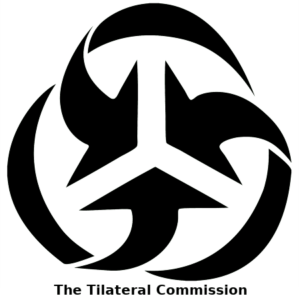
In 1973, the Trilateralists had already identified that US primacy would be dramatically transformed. This stemmed from Brzezinski’s realisation that global corporations in the technotronic era would surpass nation states in terms not only of their financial and economic power, but also in their ability to innovate and direct the activities of billions of citizens. In Between Two Ages he wrote:
“The nation-state as a fundamental unit of man’s organized life has ceased to be the principal creative force: International banks and multi-national corporations are acting and planning in terms that are far in advance of the political concepts of the nation-state.”
Fully committed to the process of globalisation, the Trilateralists started to create the new IRBO. Rather than US economic and military power the new world order would be based upon a communitarian commitment to the efficient management of resources and, via that mechanism, social control.
Nation states would give way to a global network formed by the fusion of state and corporation. This network would manage populations and business activity through a new resource-based monetary system and economic central planning.
Individual citizens and businesses would be constantly monitored and their behaviour restricted and ordered. This would afford the G3P the global governance capability they sought.
Brzezinski suggested how this future could be secured. Technocracy would enable the transformation:
“Both the growing capacity for the instant calculation of the most complex interactions and the increasing availability of biochemical means of human control augment the potential scope of consciously chosen direction. [. . .] In the technetronic society the trend seems to be toward aggregating the individual support of millions of unorganized citizens [. . .] and effectively exploiting the latest communication techniques to manipulate emotions and control reason. [. . .] Though the objective of shaping a community of the developed nations is less ambitious than the goal of world government, it is more attainable. [. . .] In China the Sino Soviet conflict has already accelerated the inescapable Sinification of Chinese communism. [. . .] This may both dilute the regime’s ideological tenacity and lead to more eclectic experimentation in shaping the Chinese road to modernity.”
The modernisation of China was seen as an opportunity to develop an advanced technocratic society which, while developing both economically and technologically, would remain a dictatorship. This presented the G3P with a perfect test bed for the construction of a Technate.
Technocracy provides centralised authority over a managed capitalist system. It allows business to prosper so long as it adheres to the diktats of the technocrats.
The new IRBO will not be based upon the primacy of nation states or their imposition of any agreed values or norms. Rather, it will be founded upon the multistakeholder system, where nominally pragmatic solutions to a declared crisis form the moral imperative. Multistakeholding means a fusion between state and corporation.
This transformation of the IRBO was emphasized by the WEF in their 2019 policy white paper Globalization 4.0. Shaping a New Global Architecture in the Age of the Fourth Industrial Revolution.
“After the Second World War, leaders worked together to develop new institutional structures and governance frameworks. [. . .] The world has changed dramatically since then. [. . .] [T]he context for governance and cooperation is changing due to the Fourth Industrial Revolution. [. . .] We have entered a distinctly new era in which many of the assumptions of prior periods no longer hold. [. . .] As emerging technologies transform our systems of health, transportation, communication, production, distribution and energy, to name just a few, we will need to construct a new synergy between public policy and institutions on the one hand, and corporate behaviour and norms on the other. [. . .] As the International Organization for Public-Private Cooperation, the Forum plans to use its platform to advance such thinking and collective action through multistakeholder dialogue. This bottom-up or inductive approach involving national governmental as well as non-state and subnational actors can help accelerate the pace of governance innovations needed in the 21st century as well as enhance the legitimacy and degree of public trust in it.”
Trust is a product of faith and we are being directed to believe in the new resilient and sustainable IRBO — one based, not upon the dominance of nation states who claim moral authority, but upon a globalist multistakeholder alliance between national governments and private interests who will keep us “safe.”
The WEF stresses the need for the people to have faith in the G3P’s globalist project. One of the key themes of the 2021 Davos meeting was rebuilding trust and for 2022 restoring trust. Referring to the alleged global trust crisis, Klaus Schwab said:
“[W]e see a degradation of trust in the world, and trust only builds through personal relations. [. . .] [W]e need a slogan. The slogan is ‘Working Together, Restoring Trust.’”
Trust is key because decisions that impact us at the local level will be taken at the global level by a policy making body that is predominantly a project of unelected private corporations. We must put aside any notion of democratic accountability or oversight and accept that the G3P knows best.
This multistakeholder, globalist structure will use technocracy to conduct its policies. We will be afforded the illusion of democracy in the form of civil society. However, via technocracy, we will be robbed of all agency and political means.
China As The Engine For The New IRBO
In 1977 the Trilateral Commission wrote a paper tiled Paper No. 15 on East-West Relations (published in 1978) in which they noted:
“China is a power with an enormous potential in human and other resources, and its leaders have set out on a course of rational modernisation intended to turn it into a leading world power […] China has never acquired a sphere of influence corresponding to its strength […] The West should not be content to defend its fundamental values […] It should set itself the objective to influence the natural processes of change […] in a direction that is favorable rather than unfavorable to those values. […] There seems to exist sufficient ways for aiding China in acceptable forms with advanced civilian technology […] To grant China favourable conditions in economic relations is definitely in the political interest of the West.”
A thriving export market in China and widening the Sino-Soviet split was in the political and economic interests of western nation states. However, constructing a new superpower to rival the Soviet Union also meant building one capable of challenging the existing IRBO.
As a G3P think-tank, the Trilateral Commission are among those that maintain they are little more than talking shops for the most powerful individuals on Earth. As with all think-tanks, they portray themselves as fundamentally reactive rather than proactive. They claim that they offer suggested policy agendas, but that they have no authority to enforce adoption of those policies.
Yet, these recommended policy agendas often unfold precisely as “suggested” by the think-tanks. Multinational corporations (MNCs) the world over seemingly responded to the Trilateralists’ agenda by engaging in a concerted effort to “influence the natural process of change” in China and to empower it to acquire “a sphere of influence corresponding to its strength.”
The economic, industrial and technological revolution in China has been remarkable, but it didn’t happen by chance. China now stands as the world’s first Technate and the western, liberal democracies are earmarked for the same transformation.
Chinese state media reported that, between 1983 – 1991, foreign direct investment in China increased from $920M to 4.37Bn. By 2019, it had eclipsed $2.1Tn. In 1994, in terms of US overseas investment, China ranked 30th. By 2000, it was 11th, as MNCs quadrupled their FDI into China between 1994 and 2001.
The pseudopandemic saw an initial 42% slow-down in global FDI. Yet, investment in to China actually increased by 4%, as it overtook the US to become the world’s leading recipient of foreign direct investment. Given the huge slump during 2020, inevitably global FDI bounced back in 2021. FDI, excluding financial services, reportedly rose by an additional 20% (in dollar terms) to achieve an annual record high of $178.48Bn in China.
In 1979, the US granted China full diplomatic recognition; in 1982, the commitment was reaffirmed in the third joint communiqué; in 1984, Beijing was permitted to purchase US military hardware; in 1994, the Clinton Whitehouse intervened to scrap the cold war embargo on the export of “sensitive technology” to China (and Russia); the 2000 US – China Relations Act was signed by President Clinton (a member of the Trilateralist Commission), establishing further improvements to trade relations; and, in 2005, then Deputy Secretary of State Robert B. Zoellick, called on China to take its place as a “responsible stakeholder.” Then, in 2008, China became the world’s leading US creditor.
This is not to suggest that the relationship between the western hegemony and the rising superpower were all plain sailing. For example, news of NATO’s “accidental” 1999 bombing of the Chinese embassy in Belgrade wasn’t received well in China. There were also marked periods of apparent political enmity between the US, its western allies and China.
In 2001, while the mainstream media reported confrontations over downed spy planes and trenchant accusations from China of aiding and abetting its enemies, the Trilateralist (G3P) project remained on course. At the same time, the US supported China’s entry into the World Trade Organisation and soon thereafter the Bush administration established permanent normal trading relations (PNTR) with China.
Yet, a cursory look at the western mainstream media (MSM), and the persistent rhetoric of politicians like the UK Foreign Secretary, suggest we should be fearful and that China is a threat to the western order. How do we reconcile these allegations while, at the same time, the western order has been investing and transferring technology to bring about China’s transformation?
Despite the surface hyperbole, occasional vitriolic exchanges and alleged military accidents, the policy trajectory, in the political, economic and even military sphere, was consistent. Just as the Trilateralist Commission “advised,” the western hegemonic order tilted towards enabling the rise of China as both a technocracy and a superpower.
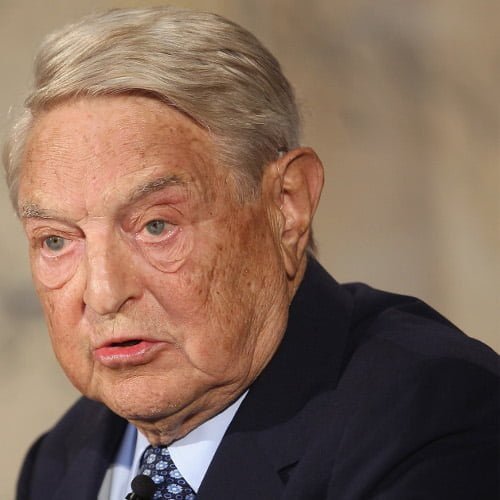
George Soros is a convicted insider trader, hedge fund manager, currency speculator and investor. His tax exempt Open Society Foundation has funded political campaigns, activist movements and coups around the world for decades. Though he is ageing today, he was formerly a member of the Trilateral Commission.
As such, Soros was among the global political, financial and corporate “thought leaders” who encouraged the modernisation of China. In a 2009 interview with the Financial Times, he said:
“You really need to bring China into the creation of a new world order; a financial world order […] I think you need a new world order that China has to be part of the process of creating it and they have to buy in. They have to own it the same way as, let’s say, the United States owns the Washington consensus […] A decline in the value of the dollar is necessary in order compensate for the fact that the US economy will remain rather weak […] China will be the engine driving it forward and the US will be actually a drag that’s being pulled along through a gradual decline in the value of the dollar.”
Years later, the 2016 – 2020 US Trump administration took what appeared to be an aggressive stance against China. Of particular alleged concern was the US bilateral trade deficit of up to $500Bn annually. A trade war ensued and tariffs were exchanged.
Speaking in Beijing in 2017, then President Trump said:
“America has a huge annual trade deficit with China [. . .] shockingly, hundreds of billions of dollars each year. Estimates are as high as $500 billion a year. We must immediately address the unfair trade practices that drive this deficit, along with barriers to market success. We really have to look at access, forced technology transfer, and the theft of intellectual property, which just, by and of itself, is costing the United States and its companies at least $300 billion a year.”
The Trump administration complained bitterly about so-called forced technology transfers (FTT) stipulated by China in exchange for access to their market. Speaking of the supposed trade war between the leaders of the current IRBO and China, the CFR think-tank were among those who criticised China’s apparent protectionism and suggested theft of intellectual property.
These allegations and the declared trade hostility appeared to be little more than a diversion designed for western public consumption. In truth, both public and private deals with China were consistently built upon FTT agreements.
In 2018, the Trump administration started to impose up to 25% tariffs on imports from China. The Chinese soon reciprocated. As the US’ largest single creditor, recently eclipsed by Japan, the US ran the risk of China dumping trillions of dollars worth of US treasuries – a nuclear option, in economic terms, which would also mean huge losses for China.
While a small reduction in the US trade deficit with China was achieved in 2019, global trade tensions increased the US deficit to the rest of the world. At the start of the pseudopandemic, the overall US trade deficit had not changed. In 2020, it reached record highs. During the FDI slump in 2020, the only investment winners were China and India.
In addition to continuously approving technology transfers, the leading IRBO nations had significantly increased their research and development (R&D) partnerships with China over the same period. Irrespective of Trump’s media circus, a 2019 report by the World Bank, referencing western nations public-private R&D investments in China, noted:
“Governments in other high-income countries have supported specific technologies and industries, particularly by targeting research and development (R&D). In the United States, government agencies such as the Defense Department’s Defense Advanced Research Projects Agency (DARPA) and the National Institutes of Health provided critical financing for key technologies. [. . .] These policies are complemented by support for key enabling technologies and industries—such as the space, defense, automotive, and steel industries—including through various funds, such as the European Structural and Investment Funds (five funds worth more than €450 billion) and Horizon 2020 (€77 billion for 2014–20).”
The Chinese government openly stated its intention for China to become a manufacturing superpower. Degrading US influence and bolstering China’s had been hardwired into western foreign economic & industrial policy and MNC investment strategies for more than a generation. It is difficult to see how any current IRBO nation, or western corporation, has been “forced” to share technology or intellectual property rights against its will.
Although the western MSM and politicians persistently alleged that China was acting against the IRBO, quite clearly that wasn’t true. Western states, and their corporate partners, were fully engaged in a process of modernising China and transforming the international order.
In response to China’s 2015 announcement of the “Made In China 2025” strategy, Klaus Schwab said that China would become “the leader in the fourth industrial revolution.” This is just as Soros and his fellow Trilateralists planned.
The WEF, not national governments, has been the leading proponent for the 4th industrial revolution (4IR). With China clearly set as the “engine” driving the global technological transformation, and Russia leading on regulation, it is apparent that, despite the sabre-rattling of politicians, western governments and corporations have been willing accomplices.
China: The World’s First Technate
Technocracy is a system of dictatorial rule based upon the allocation of resources. In 1938, Technocrat Magazine described it as follows:
“Technocracy is the science of social engineering, the scientific operation of the entire social mechanism to produce and distribute goods and services to the entire population.”
Rather like feudalism, resource distribution is controlled by a centralised authority, who mete out access to resources dependent upon the citizen’s behaviour. This is the preferred “social credit” method of population control in China. An increasing number of China’s citizens need a good social credit score in order to access resources and society.
The whole system is administered by central planners within a subordinate policy body to the State Council called the National Development and Reform Commission (NDRC). They oversee a data mining, collection and analysis operation on an immense scale.

Without any democratic oversight, technocracy in China stipulates that the people trust the edicts of the technocrats. They are required to believe, or at least publicly state, that decisions are taken in the interest of the general good. If they don’t comply the Technate can use its surveillance systems to identify offenders and punish them for their selfish behaviour.
In its 2014 document Planning A Social Credit System, the People’s Republic of China (PRC) spoke of their intention to “construct a social credit environment of honesty, self-discipline, trustworthiness, and mutual trust.” They announced:
“Our country is currently in a key period of economic and social transformation. Stakeholder entities are more diversified [. . .] the forms of social organization and management are undergoing deep changes. Comprehensively advancing the establishment of a social credit system is an effective method of strengthening societal creditworthiness, promoting mutual trust in society, and reducing social contradictions, and it is an urgent requirement for strengthening and innovating in social governance. [. . .] The establishment of a social credit system is an important foundation for comprehensively implementing the scientific viewpoint of development. [. . .] Accelerating and advancing the establishment of the social credit system is an important precondition for promoting the optimized allocation of resources.”
This is the epitome of technocracy. It is a monoculture where all are subservient to the technocratic state.
There are two arms to the social credit system in China. Both individual citizens and corporations are given a rating based upon the aggregation and analysis of the data collected from their lives and business practices.
Approximately 80% of China’s provinces have rolled out some form of the social credit system. While still in development, individual surveillance and control systems are most pervasive in the cities. People can either be placed on a “blacklist,” limiting their freedoms, or a “redlist” permitting them to engage in society in a manner deemed appropriate by the Technate. Punishments include denial of access to public transport, refused payments, public shaming or restricted employment opportunities.
Nationally, the focus has been on constructing the Corporate Social Credit System (CSCS). Millions of businesses in China are required to demonstrate their commitment to the general good, as defined by the Technate. As long as they do, they will be allowed to prosper. If they don’t obey, they won’t.
For numerous reasons, explored by Prof. Liu Yongmou in the Benefits of Technocracy in China, the Chinese political system lent itself well to the creation of the world’s first Technate:
“In China today, there exists a more favourable attitude toward technocracy than is found elsewhere. [. . .] Insofar as it is scientism applied to politics, the Chinese tend to have a positive attitude toward technocracy. [. . .] Technocracy also fits with the Chinese tradition of elite politics and the ideal, to reference a Confucian phrase, of ‘exalting the virtuous and the capable.’ [. . .] knowledge was more important than the representation of the interests of those being governed. [. . .] Against the background of the Chinese heritage of a long feudal culture, technocracy is a better way to confront social problems than authoritarian politics divorced from technical expertise.”
The WEF, the Trilateral Commission and other G3P think-tanks have encouraged the development needed for the PRC State Council’s NDRC to construct the burgeoning Technate. Foreign investment and an infusion of technology, from the current leading nations of the existing IRBO, has brought China to a position where it will provide the economic, political and cultural impetus for a new world order.
Technocracy, as piloted in China, is now being rolled out globally. Individual sovereignty and freedoms, the claimed moral basis for the current IRBO, are being replaced by a commitment to efficiency and resource management in the interests of the “general good.” In the West, we know this as “sustainable development.”
Such a system is perfect for those who want to wield supreme autocratic power, which is precisely why the G3P have long wished to install technocracy globally. It is the reason why they have assisted the construction of a Technate in China. The new IRBO will be led by the technocrat and they will serve the Global Public-Private Partnership.
Technocracy: An Operating System for the New IRBO
The new IRBO has nothing to do with representative democratic principles. It is entirely estranged from concepts such as freedom of speech and expression, democratic accountability, freedom of the press, freedom to roam and eschews all inalienable rights.
It is based upon a fusion between the political state and global corporations. We have recently seen this put into devastating effect in the Five Eyes nation of Canada.
On 14th February 2022, in response to the ongoing nationwide Truckers Freedom Convoy protests, Canadian Deputy Prime Minister and Finance Minister Chrystia Freeland stated that the government had arbitrarily decided “to broaden the scope of Canada’s anti-money laundering and terrorist financing rules.”
Starting with crowd-funding and payment platforms, including crypto-currency exchanges, these private corporations were required to report all “suspicious” transactions to the government.
This quickly progressed to freezing protestors banks accounts. Freeland said that the private corporations were “collaborating properly and effectively.”
This is precisely how China’s technocratic social credit model is designed to function. Those who question the authority of the G3P will be crushed. Chrystia Freeland is a World Economic Forum Board Trustee.
As previously mentioned, this government-corporate synthesis echoes the Fascist State described by Mussolini. In particular, the use of technocracy to manage the behaviour of both the individual and corporations embodies the principles he described:
“The Fascist State lays claim to rule in the economic field no less than in others. [. . .] The Fascist State organizes the nation, but it leaves the individual adequate elbow room. It has curtailed useless or harmful liberties while preserving those which are essential. In such matters the individual cannot be the judge, but the State only.”
The democratic tradition of sovereign individuals, exercising their rights and coming together to pursue their shared interests is what the UK government call the “democratic deficit.” Their intention, with their proposal for their new Bill of Rights, is to allow those who comply with their diktats some “elbow room” to live a relatively “normal” existence.
However, by defining what is in the “broader public interest,” they will curtail the liberties which they deem to be useless or harmful. “[T]he individual cannot be the judge, but the State only.” For example, the explanatory notes for the imminent Online Safety Act, The UK government announced:
“The Online Safety Bill establishes a new regulatory regime to address illegal and harmful content online, with the aim of preventing harm to individuals.”
The current Bill defines whatever the government deems to be disinformation or misinformation as “content that is harmful to adults.” Freedom of speech and expression online will effectively be terminated by the forthcoming legislation. The UK state will not allow social media users to share any information without official approval. This is equivalent to the current situation in China.
Much like China’s CSCS, at the recent COP26 summit, the chairman of the International Financial Reporting Standards (IFRS) Foundation, Erkki Liikänen, announced the International Sustainability Standards Board (ISSB). This will oversee the accountancy standards for businesses across the world who will be required to submit their sustainability disclosure to meet Sustainable Development Goals (SDGs).
The ISSB states:
“International investors with global investment portfolios are increasingly calling for high quality, transparent, reliable and comparable reporting by companies on climate and other environmental, social and governance (ESG) matters. [. . .] The intention is for the ISSB to deliver a comprehensive global baseline of sustainability-related disclosure standards that provide investors and other capital market participants with information about companies’ sustainability-related risks and opportunities to help them make informed decisions.”
The ISSB standards require businesses to commit to SDGs, with investments rated using the WEF’s stakeholder capitalism metrics. These metrics will assign an environmental, social and governance (ESG) rating to prospective investments. Any business that wishes to raise capital will need a good ESG rating.
You might imagine that MNCs would be opposed to these additional regulations. However, as with the CSCS system in China, those who work in partnership with government will do very well in this arrangement. Speaking in 2019, the UN special envoy for climate action and finance Mark Carney said:
“Companies that don’t adapt—including companies in the financial system—will go bankrupt without question. [But] there will be great fortunes made along this path aligned with what society wants.”
The G3P decrees “what society wants,” just as its government assets determine what is in “the broader public interest.” By fostering the working partnership between state and corporation, like all good technocrats, the G3P leaders can insure that those who are loyal to them and their agenda will prosper, while those who aren’t will fail.
Responding to Liikänen’s announcement, the Chinese Ministry of Finance offered to host the ISSB. This centralised control over business and economy exemplifies the technocracy the G3P have cultivated in China. The Minister of Finance, Liu Kun, said:
“Developing one single set of high quality, understandable, enforceable and globally accepted sustainability standards by the ISSB is of great significance.”
Developing one global governance authority and setting the policy agenda in every sphere of human endeavour, has been the goal of the G3P for generations. Technocracy will enable them to manage the global transition to that system and technocracy will be the instrument through which they enforce their rule.
The key element for technocracy to succeed is reform of the monetary system. In 1934, Scott and Hubbert suggested that “energy certificates” should replace the dollar. They were seeking a way to to use money both as a means of surveillance and as a means to control the behaviour of the citizenry.
China conducted operational trials of its version of Central Bank Digital Currency (digital yuan – e-RMB) in the city of Shenzhen in 2020. Since then, it claims to have conducted billions of dollars worth of transactions using the e-RMB. The People’s Bank of China has now issued its digital wallet (e-CNY) for both Android and iOS devices.
China and Russia are in the vanguard of the race to introduce Central Bank Digital Currency (CBDC) globally. Recently, the Bank of America said that a US CBDC was “inevitable” as the US Federal Reserve explored the possibility. The Bank of England and European Central Bank are looking to introduce the same and the Bank of Russia is some way ahead, having launched its CBDC pilot in June 2021.
CBDC is a liability of the central banks (it is always their money, not the users) and it is programmable. This means transactions can be permitted or denied by the issuing central bank at the point of payment.
In a CBDC world, G3P partners, such as the Canadian government, won’t need to extend oppressive legislation to seize protestors bank accounts. They will simply disable their ability to buy anything. The BBC hinted at the kind of impact this would have upon society:
“Payments could be integrated with appliances at home or tills at the shops. Tax payments could be routed to HM Revenue and Customs at the point of sale [. . .] electricity meters paying suppliers directly [. . .] allowing payments such as for a few pence each time to read individual news articles.”
The BBC’s appraisal barely touched upon the degree of control CBDC affords G3P technocrats. Should CBDC become the only form of currency available to us, we won’t have any money of our own.
All money will be controlled by the G3P’s Central Banks. They will decide what we are allowed to purchase with their CBDCs.
While technocracy was an impossible dream in the 1930s, today it is eminently achievable. Just as Brzezinski foresaw, the required technological capability now exists.
When Klaus Schwab and George Soros said China would be the engine of the new IRBO and the leaders of the 4th Industrial Revolution, they didn’t mean that China would become the centre of a political hegemony, as the US has been. Rather, China is the exemplar of technocracy, providing an operational model for the new global system alongside the supposedly necessary economic growth.
This new IRBO is the world order designed by the G3P. It is a neofeudal, techno-fascist, global technocracy led by a worldwide, multistakeholder network of vested, private interests.
The governments we elect will enforce the G3P policy agenda. The MSM’s task, who are both partners within and propagandists for the G3P, is to convince us to buy into it.
Ours is to ensure that we don’t fall for it.
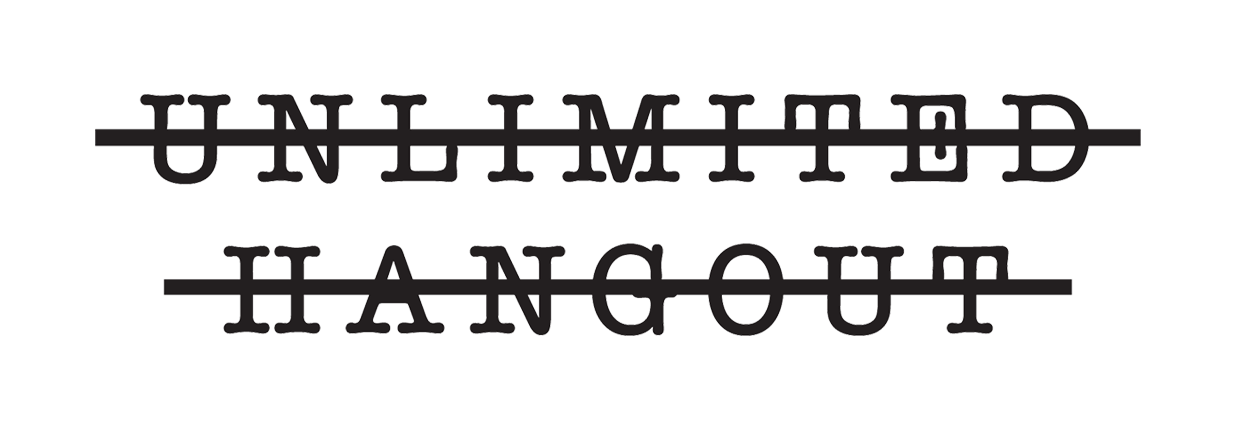
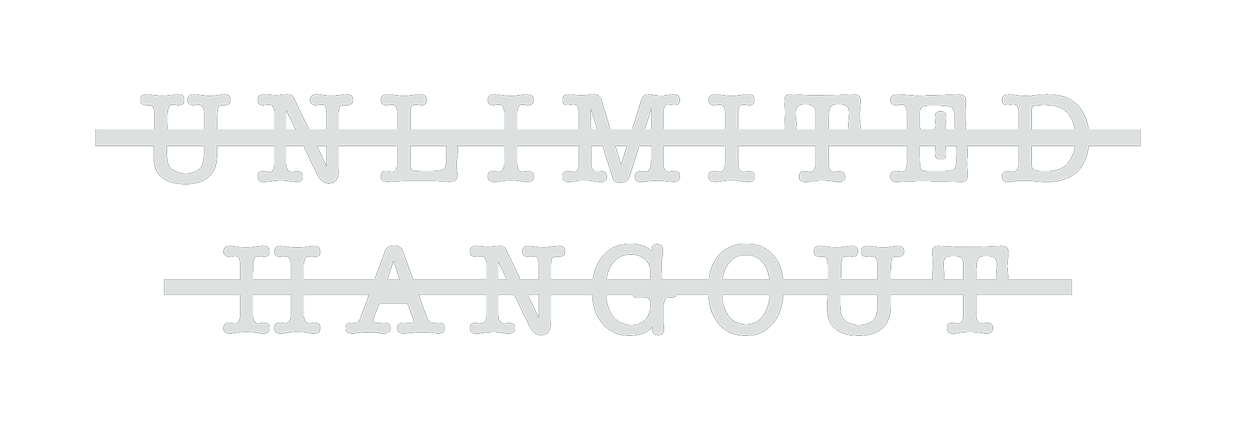
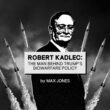



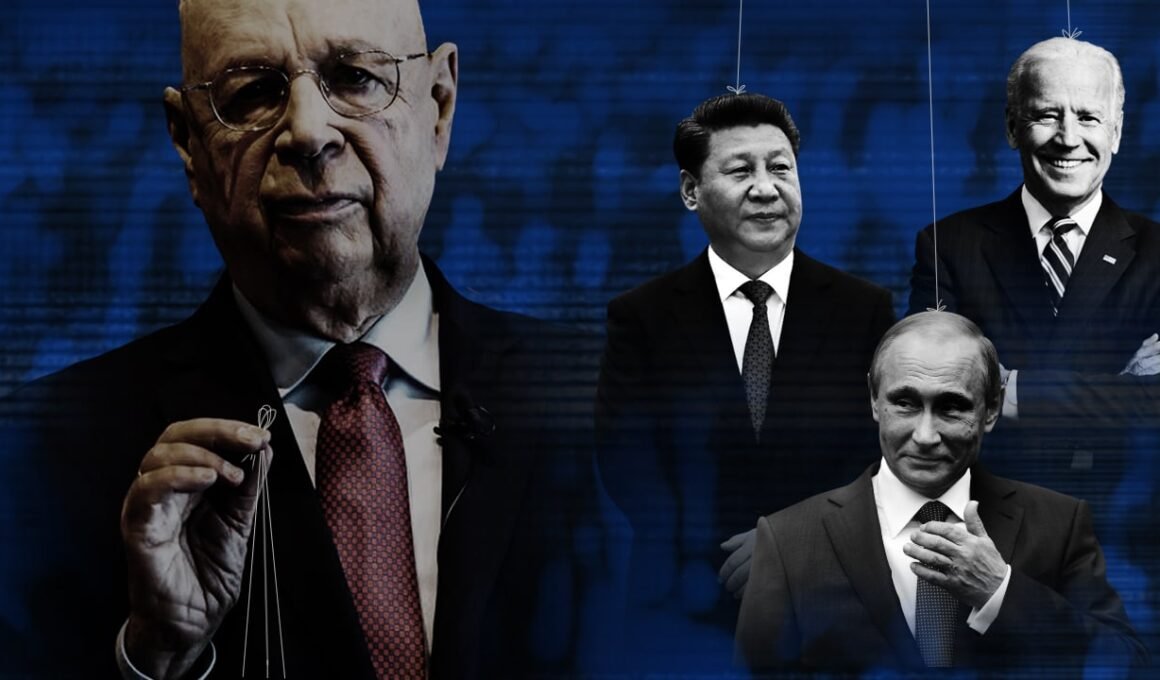



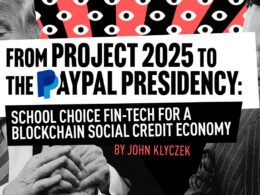

Interesting article as it provides a framework for reconciling a lot of dawning features in todays sociopolitical landscape that seem incoherent viewed as unrelated trends.
This is an incredible article. Thank you so much.
What will it take to wake people up?
Nothing will wake up people. Brace for impact and save yourself
I’ve been trying to tell this to people for 2 years. I’m just a lawyer-turned-stay-at-home-mom with open eyes and a curious mind, motivated by the desire to protect my family. Here, in a blue-collar, California coastal town, people regard my warnings as baffling and too stressful to ponder. I’m only able to engage meaningfully with others who are awake if I get online. That method of communication and organization will be stripped away via legislation and, perhaps, even a ‘cyber attack’ that, when the web comes back online, will have been scrubbed or ‘sanitized’. Unless a sufficient number of human beings wake up soon, those of us who don’t slumber will need to have developed strongly our intuition in order to rely on the innate intelligence of nature to guide us to find one another. Godspeed to us all.
I agree with you and I think you have a better chance of communicating on an instinctive level with the blue collars than anyone else. The problem is in translating things into a more physical environment, not just language but attitude and emotion. Ian seems to come from this place and I understand him more clearly than most in the rather cerebral blogosphere. Everything can be simplified and made more real. Good luck.
Fully agree, it’s not a coincidence they created a new “crisis” called Ukraine, at this very moment.
I think the best way to penetrate the consciousness of people (who, after all, just want to live peaceful, enjoyable lives and don’t want to believe they are essentially targeted) is to predict the things that will effect them – food shortages, cash withdrawal, poverty, etc. When these things occur they will begin asking you what happens next. I certainly found this recently from my 6 year long (longer than I imagined) prediction, and constant warnings, of the Ukraine conflict and its effect on energy prices. Suddenly I have people asking me: “So what is the Trilateral Commission?” “Who is George Soros?”
Interestingly the Trilateral Commission’s website is down.
Hmm. 🤔
Seriously taking the contentions of the article into consideration, one can’t help but wonder if at some level the “Donbass” showdown is more contrived “spectacle” rather than actual “event” – and if it is being carefully stage-managed in ways most people would find quite unimaginable. The history of “false-flag” events to manipulate the public is certainly long and sordid enough to seriously consider this. Might a “stage-managed” shooting war break out that magically justifies martial law throughout the West, including mass censorship on all platforms? All of course in service to furthering the move toward a GP3 world. It would appear that not only is the world of “intelligence” a “wilderness of mirrors,” but so is our understanding of the larger world around us!
This article has to be the very best overview of current global shenanigans I have ever read. Iain Davis – I take my hat off to your balanced erudition. I am going to print a hard copy to place in my diary so my grandchildren and those who come after them can read it and see why they will be they way they are forced to be in the future world. IF we fail to take a principled and well researched stand against blanket tyranny.
Such optimism! I don’t think there will be many after us. Arrogant mankind is seeking to replace God as the ultimate controller of the world. Nature will win over technocracy.
Thank you for your EXCELLENT ARTICLE Mr. Davis!
We are so far into this horrid plan, with Schwab openly admitting that half of Parliament in Ottawa has been infiltrated (he used those very words!), that I fear there will never be an honest, fair and democratic ever held again in Canada! And of course, this goes for EVERY nation, world-wide!
We have Trudeau, Freeland, Carney, Musk, and many others who are Young Global Leaders/technocrats and WEF appointees. They are a small club, and WE AIN’T IN IT, as George Carlin once said!
How do we get RID of these FASCISTS??? People ARE waking up, but they already control EVERYTHING and are the MAJORITY! Any time we oppose new mandates or laws, they pass anyways! We were forced to pay carbon taxes, to shut up and go along or to be demonized, with our free Speech being taken away day after day, subjected to a myriad of unfair and corrupt laws which enrich only the top elite, as society crumbles and most are falling out of the middle class into dire poverty, into complete serfdom, dependent on government checks to barely SURVIVE (all purposefully done to get us all on Universal Basic Income, of course)! Schwab said it himself: You will own nothing, and you will be happy!
My ASS!!! (pardon the language, but I am livid, as are billions around the world, that this un-elected CABAL is getting away with this, without anyone being arrested for corruption or murder! They are ABOVE THE LAW)!
I live in Ottawa and have partaken in the recent Truckers Freedom Protests, which were nothing but peaceful, yet Trudeau invoked the Emergency Act for this small ‘fringe’ minority, and froze bank accounts, as you said in your great article! WHAT’S NEXT??? Re-education camps???
Thank God, Senators were almost ALL against it (does that mean that we actually still have a number of people with a conscience who are in power in this country? Thank God!). As soon as Trudeau heard that most Senators were not going to rubberstamp his insane Act, he announced that he was rescinding it. But this is merely a temporary step backwards, as we all know, as Gates, Schwab and other elite globalist technocrats have already planned for the next PLANdemic and are even pushing WWIII to ‘erase’ their crimes against humanity with the collapse of their private bank Fed fiat dollar, to bring us into a much more severe created calamity – an economic collapse and destroyed supply chains – to then come in to ‘save us’, with the promise of safety and peace. Problem reaction solution. Order out of chaos. They have successfully controlled the world forever with these corrupt, evil tactics!
The ONLY way I can see us getting out of this future hellish nightmare, will be to have a WIDE-AWAKE, WELL-INFORMED MAJORITY of the population saying “ABSOLUTELY NOT!” “HELL NO!” “ENOUGH IS ENOUGH!” Many of us have already screamed this from the rooftops for the last two years (well, make that five, ever since Trudeau started destroying the country!), but of course, nothing ever changes!
We will need MASSIVE non-compliance, even if it comes to civil war. If we’re not annihilated by WWIII before then, that is! Would you please do us all a HUGE favor, and write another article in which you make suggestions on HOW TO BEAT THEIR SYSTEM? You are so knowledgeable. I impatiently await your view-point and ideas on SOLUTIONS to this nightmare! Thank you SO much,
From a frightened citizen in Kommie Kanadastan!
Thy shall not fear and they (the devil) will fear you.
Author Iain Davis wrote a telling summary of the current global state of affairs. Unnecessarily long but nonetheless valuable for conveying information essential to understand the depth of our predicament. I wish to add a little of my perspective:
It is commonly understood that nature abhors a vacuum. I think that this is as true in the political realm as in the physical realm. Modern Western democracies allow almost no voter participation or control over core matters that affect their lives. Periodic elections are comedically inadequate to the task. This system creates an ongoing control vacuum readily inhabited by those who seize the opportunity. Voters don’t step into the breach and they passively surrender to rule by those who do.
Governing systems have insulated themselves from voters and from meaningful change. Peaceful attempts to change systems by the rules of these systems are a waste of time. This was inevitable without voters in charge.
As I see it there are 3 choices:
1) surrender and hope for the best
2) attack the system and hope to win
3) organize to massively secede, form your own government(s), and hope to win by attrition as more and more people catch on.
We’re in this fix because we let it happen.
You’re right, at the end of the day we, in the contrary to they, are creative human beings finding a way out of this mess. So, #3 will happen anyway. They hate creativeness, as most of them are psychopaths.
Moreover, they have to rely on us, because they can’t do, make, create anything themselves.
Mr. Davis has adroitly brought me to a deeper understanding of the players, the programs that are being implemented, the whys (completely and utter slavery of the worlds citizens) and the deceptive means that are used by almost every one that has been put in a position of trust, whether it be in the public or private sphere, who are deceiving us non stop, in myriad ways, now, and with an in your face brutality.
We use to describe it as “communism comes with a gun and says let’s shoot them all, but socialism (same as communism) comes and says, no, let’s do it gradually, like boiling a frog slowly in water”.
What we have to look forward too, and not to far in the distance future, is the gun!
St. Paul talked about it: “Therefore God shall send them the operation of error, to believe lying: that all may be judged who have not believed the truth, but have consented to iniquity”
Thanks to the author for all the time it took for you to write such an excellent article
We salute you! Thanks for digging deep and bringing much together to paint a more comprehensive picture of what is transpiring behind the ‘mainstream media curtain’.
Thank you! That was an incredible article. I would love to help you get the word out by having you speak with me & my audience.
Great article. Keep up the good work Iain.
The usurping of Law by rules or indeed corporate contract is a signature characteristic of a mindset of structure, usurping the heart of a living and share cultural exchange of true worth-ship and with-ness.
The system based on lack, scarcity and control must bring forth solutions that protect the problem.
So while the world of structure presents a seemingly overwhelming case for its own predicates & rules, the heart is attuned to the realm of truly current qualities of discernment.
The shift to structure and cancelling of the heart to a virtual metafantasy under lies given power (defences against truth) is a signature of our currently collective consciousness or indeed unconscious determination,
Law, truth, love, peace, joy, freedom, and power are part and parcel of each other as the primary qualities of being.
The mind’s attempt to put Humpty together again is predicated on the fragmentation that invoked its ‘claim to power’. Use the world of projected effects, results, symptoms to clear our own ‘Temple’ lest a blind template runs in the name of our true devotion. Or withdraw allegiance and support from lies given power in active willingness to uncover the true – not the truth that lies set us seeking in endless complex futility.
Nice to hear from you again, Binra. I miss your wisdom on Twitter ‘cos they won’t let me on it anymore! I must have said something right. But still, it does make me angry to be shut down by bullies when I am only trying to help my fellow human beings by sticking up for what is rightfully ours, freedom. Freedom to be kind to each other, unlike them!
Hello Alison,
Does twitter ban also apply to read access?
Can a protonmail a/c resub?
Can inoreader follow twitter feeds?
I don’t yet know btw.
I expected to be banned not because I seek to incite or foment hate & violence, but from writing as honest witness amidst protected lies. yet so far I havent – so I get drawn into a seemingly random moments of resonance shared.
I still occasionally put writing at
http://willingness-to-listen.blogspot.co.uk/
My focus is a reintegrative recognition – regardless of the apparent situation.
Freedom to be that I am, meets a like resonance in others and world.
In gratitude for being.
I also meet unconscious facets of self-denied as opportunity for acceptance and release.
Which is like being unpeeled to an incapacity to think – through which life moves freely.
To be of a kind is to share a nature.
We made a masking nature that then shuts us down!
But can our thoughts attack or imprison the mind that thinks them?
Thanks for your kindness
Brian
As you say, technocracy, using technology to monitor mankind, is inevitable. Technocracy is not all evil if grounded by Nationalistic ideals. What this and other articles never mention is within each country, there are Globalist (deep state) actors and Nationalist actors vying for power and influence. No country is “monolithic” whether they are Democratic, Communist or Socialist. Many of your predictions of terror by any country is based on a monolithic model. First lets define Globalists and Nationalists. Globalists use “finance capitalism” which issues debt to industries relating to speculation (i.e. FIRE sector “finance, insurance, real estate”), This model enriches the top 10% while the remaining 90% are debt slaves and don’t benefit from speculation. Nationalists use “industrial capitalism” which issues debt to industries producing tangible goods (infrastructure, factories, schools etc). This model benefits 90% of society. Using recent history as our guide (50 years), which country has been most successful in improving their populations standard of living? You will need to remove the mainstream media propaganda and see with your eyes, but the clear winner is China. China is Industrial Capitalism. So, technocracy for China doesn’t appear to be something to fear were I a Chinese citizen. On the other hand, the West (i.e. USA) using Finance Capitalism has seen the layman’s quality of life get worse over time. The majority of people are in debt, unhealthy and work meaningless service sector jobs. Roads and public transit are in decay. Again, pay no attention to the mainstream propaganda and see the country (i.e. USA) with your own eyes. Technocracy in such a society would mean further repression at the hands of the top 10%. Technocracy is not to fear since it’s just technology. In truth, Technocracy in the hands of Globalists is what we should fear. Technocracy by Nationalists will be used to improve the majority of society. Using a giant brush to paint “Technocracy” as bad is misleading, insincere and only works for the naive.
I agree, especially your point about different actors within countries vying for power and influence. There are certainly globalist fifth columnists within countries like China, and to a greater degree, Russia, who are attempting to create the “One World Government” Technocratic fuedal state as envision by the Trilateral Commission etc.. But that doesn’t mean they are succeeding. There’s a reason figures like Xi Jinping are vilified by these Globalists, it’s because they aren’t doing what they’re supposed to do. Your point about Finance Capitalism vs Industrial Capitalism is apt, and Michael Hudson explains that clearly in his books, such as Destiny of Civilization.
I just tried to post this on FB and scored a banned content warning. No wonder. This article is exactly what they are doing.
You lay it out very clearly Ian in this detailed article. Difficult trying to explain this to people you start the see their eyes glaze over.
Thank you for taking the time to collect all the resource information on this amazing article that is in effect a very large puzzle of complicated interconnected pieces. Excellent!
THIS IS THE AGENDA OF TOTAL SLAVERY! DO NOT COMPLY! RESIST! DITCH THE DAMNED PHONE AND GO BACK TO LANDLINES! USE CASH AS MUCH AS POSSIBLE! CASH!
Another absolutely phenomenal piece Iain, and I say that knowing, I will have to reread several times to absorb the sheer volume of factual information contained therein. Brzezinski was some evil genius, but sadly, one amongst many. Given that Orwell started 1984 in 1944, he must surely have been keeping abreast of the inhumane and exploitative preoccupations of the likes of Technocracy Inc. and the associated study course.
On a personal level, armed only with truth seeking inclinations, ( and completely surrounded by a sleepwalking general public) and recourse to little else in the way of solution, other than an absolute determination to using cash only, I am left with an overwhelming sense that there is nobody with the political backbone or power to stop these deranged elitists.
I can’t help but wonder how much longer it’s going to be before some completely disenfranchised ordinary member of the public (and there’s bound to be an increasing amount of them) tries to take matters into their own hands and resorts to desperate measures, whatever form that may take… aside from suicide, which is more than likely already occuring.
Excellent, to the point, and very informative. I have been watching this unfold for years now. I am glad more people are waking up. No matter what they plan for humanity; we have a choice and nothing can ever change that. We are born with the ability to choose. as for myself… all of those people have to be removed. They are just human beings; just like us… and its time the world sees them as such. Thank you for the posting, I shall be inviting others to read it. Take care
The most succinct, comprehensive and well-researched article on this crucial topic that I’ve yet encountered. Thank you for such an important piece of information.
This is SUCH an important article — one of the best I’ve seen in summarizing the current big picture situation so eloquently. I hope this doesn’t sound crazy but you need to get this to Joe Rogan (maybe Whitney can join you?) and he needs to have you on–I believe he just learned about WEF. He has a huge audience despite all the recent attempts to shut him up. IF the public knows about this–the public that supports the truckers, the regular Joes and Janes…then they will know NOT to go digital, not to comply. This only works when a small few hear the gloaters gloat. GET THIS OUT to the world if you can and THANK YOU.
Great stuff ! Thanks for all your research.
An absolutely masterly dissertation of the dystopian future those of us with at least some grasp of historical perspective have been warning about for years. Iain Davis’s deep dive into the mechanisms of technological tyranny poised to overwhelm us should be compulsory reading for everyone on the planet. Instead, it is almost certainly destined to be generally dismissed as just another crazy conspiracy theory – arguably three of the most famous last words in the relatively brief, and soon to be extinguished, history of humanity. Bless your for trying, Iain. You’re a star.
Excellent research, an impeccable article . Solid sobering research rolled into a gripping narrative. Bravo!
Perhaps there could be follow up, a primer for those who dismiss the evil underpinnings of child abuse used to ensnare actors at all levels in this ritualised satanic saga?
This article and others help link the dots of the evil that is being perpetuated before our eyes. The notion of individual freedom and autonomy has been nothing less than an illusion.
Seriously, how do we reclaim our humanity?
The depth of this evil is so pervasive and entrenched at the highest levels, how do we reclaim our identity?
If we don’t, our children’s future and humanities future is set to be oppressed.
Great article. Thank you!
Mr Iain Davis
Thank you very much, I have posted and emailed your article to everyone I could think of.
Alain…
Thanks Iain. This will be immensely useful.
Fantastic article that covers the events that have led us to this point by the vile globalist overlords. I have shared with many of my friends. Well done Iain Davis!!
A great read and further proof of a Babylonian beast system that has been created for the controlled demolition of humanity.
A GOLDEN CAGE IS STILL A CAGE!
And Lest we forget-
*ALL WARS ARE BANKERS WARS*
Aloha and mahalo
Surely a very acute article but there is lack and this lack is a very big one: which are the true relations between Israel and the Empire of the Middle, China? This is the real question!
Another excellent highly informative article thanks Iain. It would appear we are treated to one Psy-op designed to control the masses after another. Hegelian Dialect has long been the preferred method of control, using opposites like east v west, left v right, vaccinated v unvaccinated to divide and conquer. So long as we fall for these Mockingbird MSM MK Ultra Mind control techniques we will beg our Governments to protect us from the Big Bad (?), virus, hijacked airplane, mad Russian with his hand on the nuclear button. Past psy-ops have proven we will willingly give up our freedoms for security. The excessive security checks at airports following the biggest psy-op of all, 9/11, were sold as temporary for our own protection, just like 3 weeks to flatten the curve. Conspiracy theorists believe Bin Laden was a CIA asset and that even the planes were CGI fakes. The CIA, thought to have descended from the Nazis smuggled to the US under Operation Paper Clip to continue their world takeover no doubt have their hidden hand in the IRBO, aka The New World Order. Cathy O’Brien, MK Ultra survivor and author of Trance Formation of America, has been very vocal about the Covid plandemic being a huge step towards this New World Order. We are at a critical juncture but thanks to voices like hers and yours the MSM are losing their grip and the tipping point required for full Awakening may not be as far away as we think.
The first trick the bankers pulled was getting the people to believe that only currency issued by them was legal tender. Then the second trick will be to control who is even allowed to use it.
The vaccine passport is an obvious way of introducing the Chinese social credit score to the West.
The only thing the article doesn’t touch on but hints at is the role of the manufactured crisis in the problem-reaction-solution paradigm, that is the main technique for moving society, with the slow creep and media indoctrination second and third on the list.
Ian, if you think the MSM are gonna be our protectors against the Technocrats, you are woefully deceived.
They are OWNED by the TeCHNOCRATS.
OMG I came here for HOPE, not despair. I am now in DESPAIR if this is are only hope.